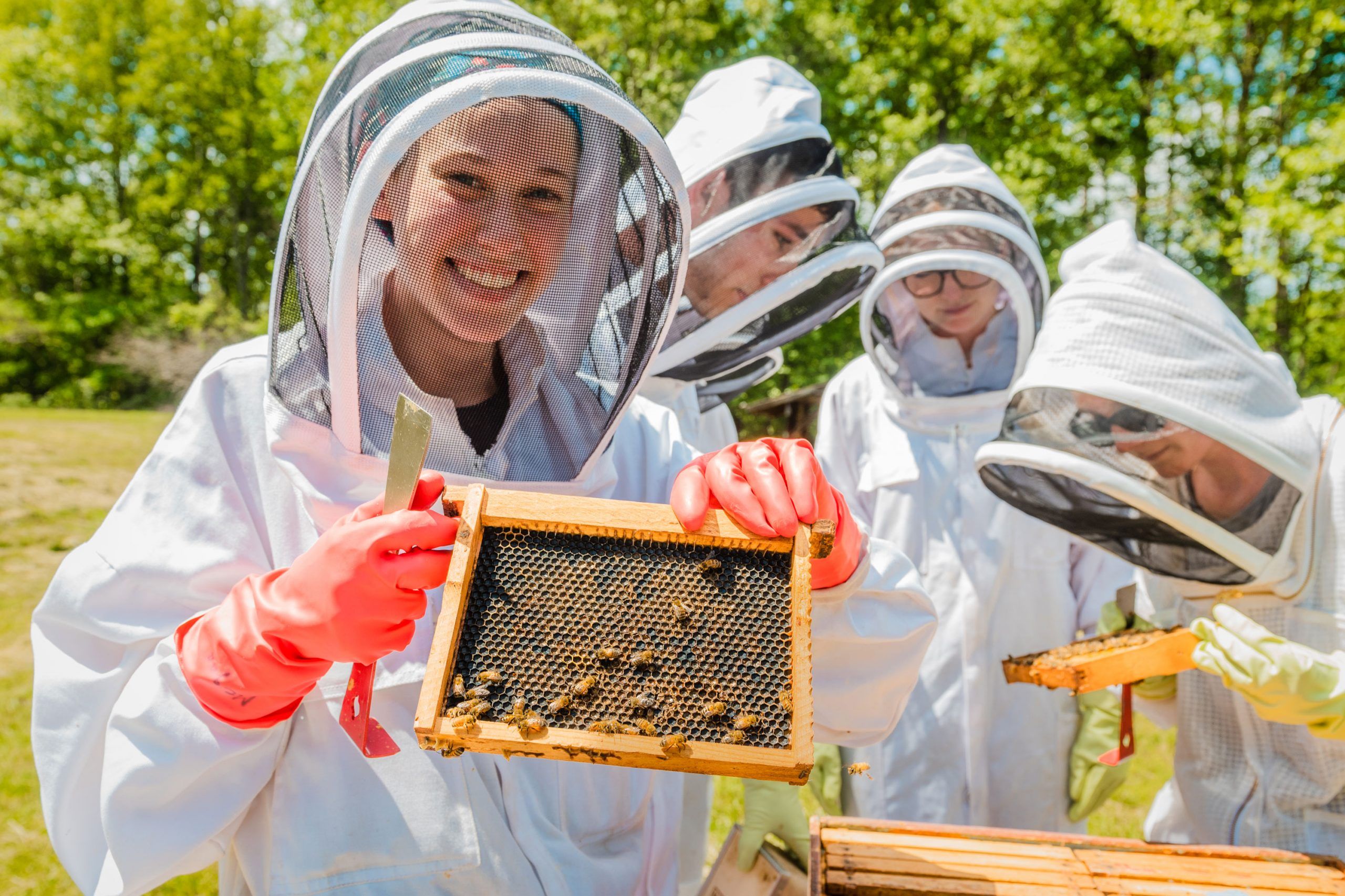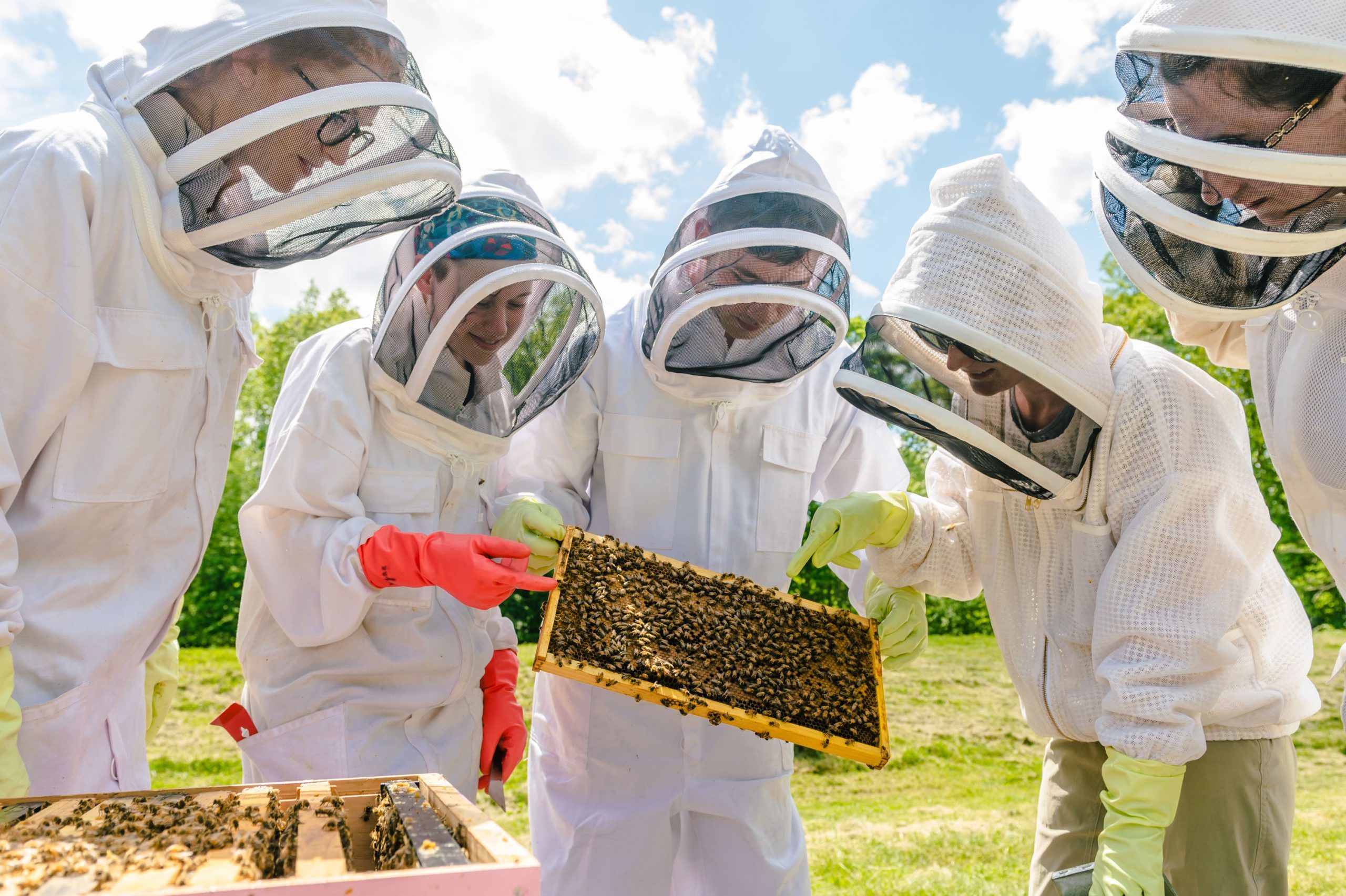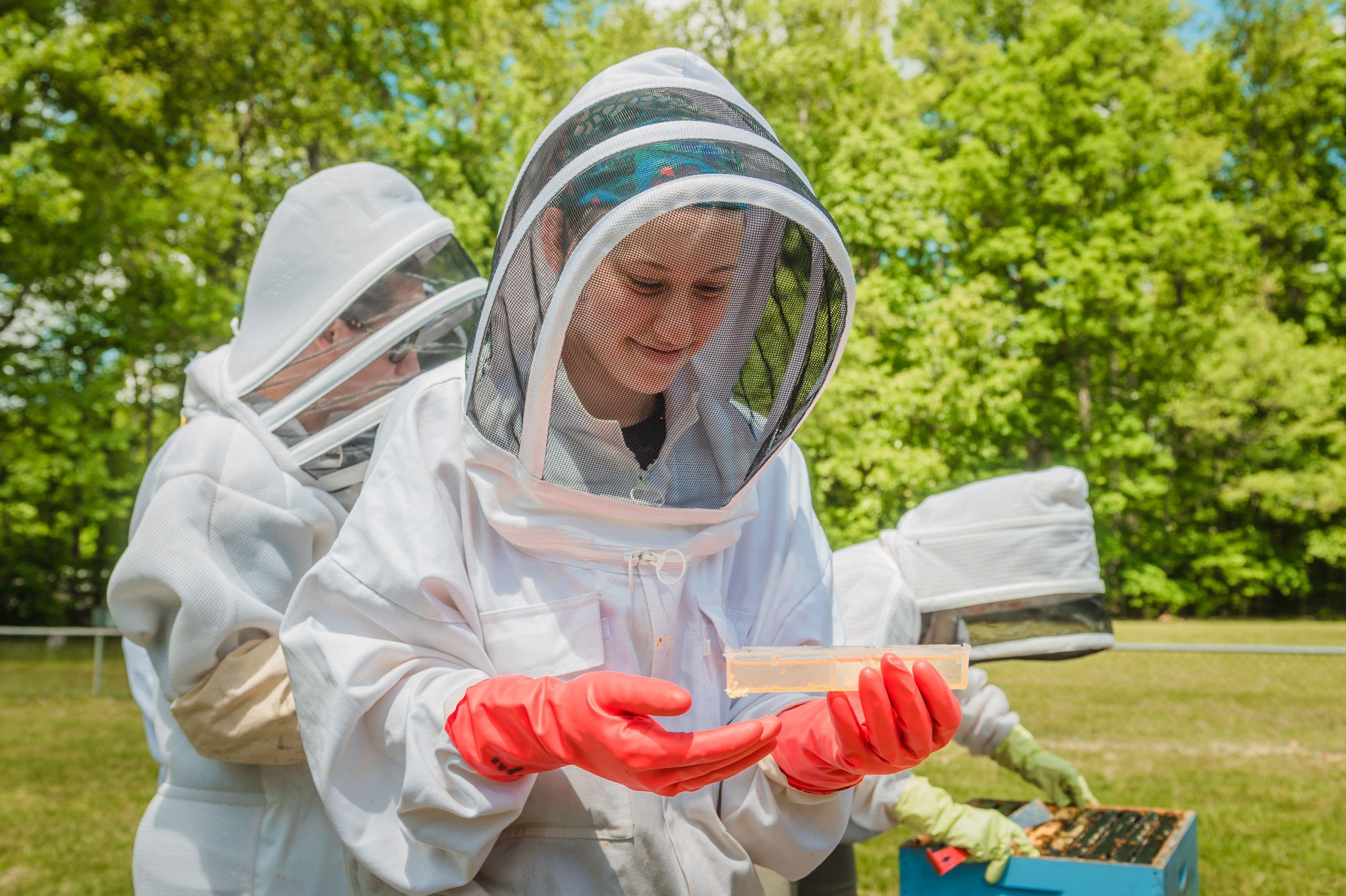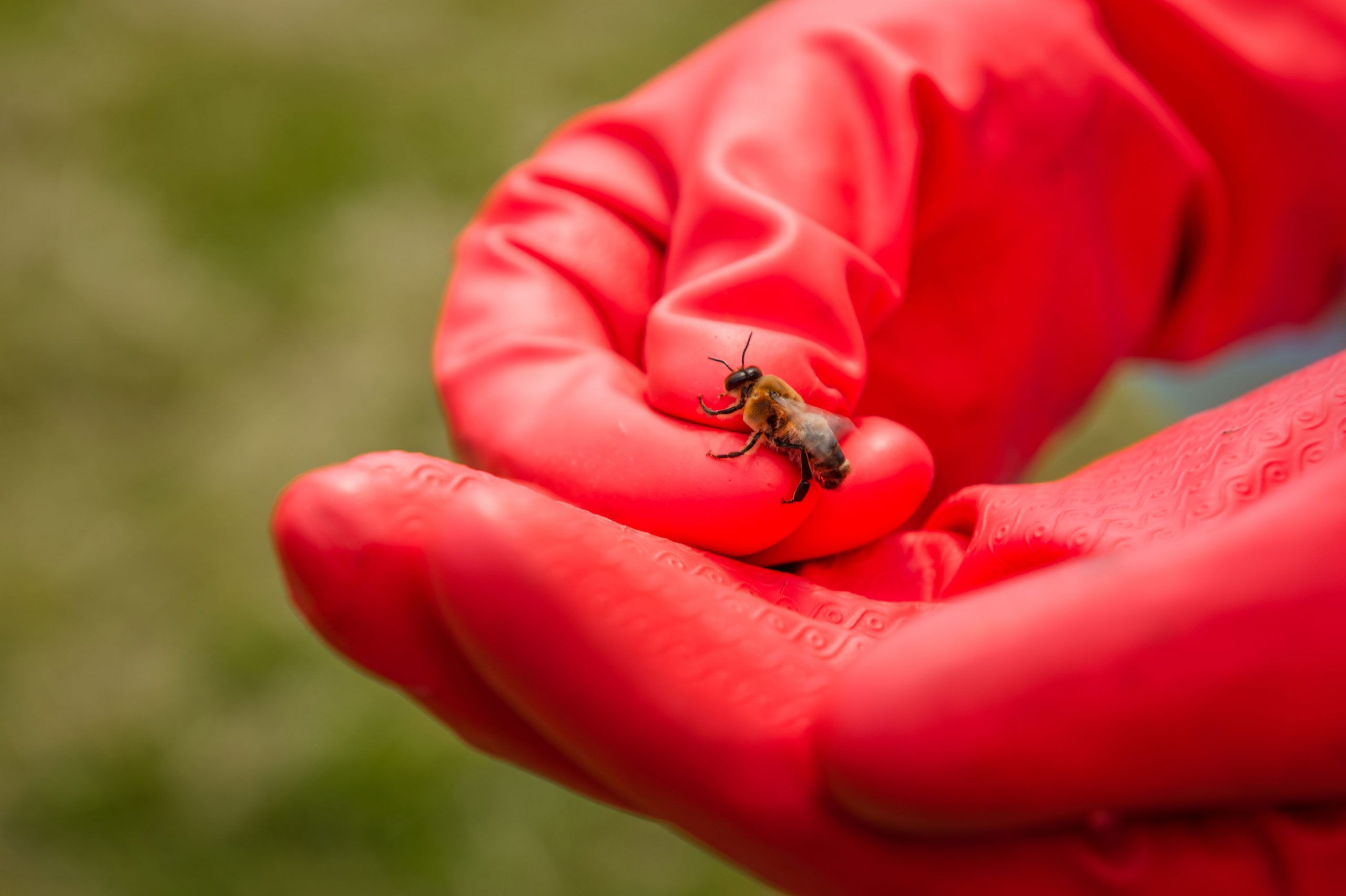THE BUZZ ABOUT BEE PROBIOTICS
A student-turned-advocate investigates a popular but problematic beekeeping product
THE BUZZ ABOUT BEE PROBIOTICS
A student-turned-advocate investigates a popular but problematic product
Microbiomes – the microorganisms living in and on us – are having a moment.
Whether they’re perusing grocery store aisles packed with probiotics or trending TikToks, people are eager to know how to optimize microbiome health.
Beekeepers are invested, too.
“Beekeepers, especially commercial beekeepers, are treating their hives with probiotics at large scales,” says Dr. Kasie Raymann, an evolutionary biologist and honey bee microbe expert at UNCG.
They hope probiotics will combat negative impacts of antibiotic use in hives and improve honey bee health. Given that about one-third of hives were lost in 2021 alone, every possible advantage is critical.
Unfortunately, those hopes may be unfounded, say Raymann and her doctoral student Megan Damico.
Probiotics may be popular, but are they effective? Graduate student Megan Damico is investigating probiotic use by beekeepers – and taking her findings from the lab to the real world as a science advocate.
Probiotics may be popular, but are they effective? Graduate student Megan Damico is investigating probiotic use by beekeepers – and taking her findings from the lab to the real world as a science advocate.
Part of the Hive
Researchers investigate bee child-rearing practices, gut health, and more to help hives – and humans – thrive.
“There is a sense of desperation,” says Damico. “Beekeepers want to do whatever they can to keep their bees healthy.”
“There is a sense of desperation,” says Damico. “Beekeepers want to do whatever they can to keep their bees healthy.”
“Bee probiotics are regulated like food – the product ingredients have to be safe,” says Damico. “But they’re not regulated in the sense that their claims have to be true.”
As part of her dissertation research, Damico is partnering with NC master beekeeper Burton Beasley to investigate whether marketed probiotics help to restore bees’ natural bacterial populations after antibiotic use.
The lab’s early findings match their expectations and previous studies in the area: After hives are treated with antibiotics, adding commercial probiotics does not significantly replenish honey bee microbiomes.
“As of now, the science says these products available to beekeepers do not work,” Damico explains.
Damico and Raymann caution that science is always evolving – a future probiotic could strike the scientific sweet spot and help bees. But in the meantime, they point out, probiotics on the market are expensive and seem to be a waste of both time and money.
Damico is working to get the word out about this.
“When you look at the ingredients of current probiotics, none of the microbes are actually native residents of honey bees,” says Raymann. “So you wouldn’t expect them to be able to colonize.”
“When you look at the ingredients of current probiotics, none of the microbes are actually native residents of honey bees,” says Raymann. “So you wouldn’t expect them to be able to colonize.”
Members of the Raymann lab operate out of UNCG’s Plant and Pollinator Center. The new research, training, and public engagement facility focuses on connections in nature that underpin human health and wellness.
While many doctoral students dream of setting up research labs of their own, Damico is planning for a future in science policy and advocacy.
She has already completed Day One Project’s Early Career Science Policy Accelerator, where she developed a policy brief about probiotic use in honey bees. In the brief, she called for an extension of the FDA’s animal drug approval process to cover probiotics and similar products, as well as methods to further educate beekeepers – and veterinarians that work with them –about antibiotic use.
Her work was well-received by the Federation of American Scientists, so much so that the nonprofit policy organization offered Damico her current position as a policy entrepreneur fellow.
Damico says she’s driven by the process of translating science into action and impacting the everyday person.
“I’m a first-generation college student, so being able to give back to the communities that helped raise me was really important.”
“I think it’s extremely important to have trained researchers in policy because they know how research works and understand the obstacles we encounter,” says Raymann. “I can’t imagine a better scenario than having Megan in the policy space representing science.”
“I think it’s extremely important to have trained researchers in policy because they know how research works and understand the obstacles we encounter,” says Raymann. “I can’t imagine a better scenario than having Megan in the policy space representing science.”
She has also jumped headfirst into the world of advocacy here at UNCG, spearheading the Spartans for Science Policy student group. Community involvement, she says, is one of the reasons she fell in love with UNCG.
“There is a group for everything in Greensboro and becoming involved in my community made me feel more confident in my own work,” she says.
“I hope to show students ways they can use their voice to cultivate a brighter future.”



